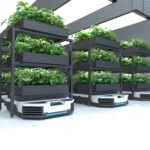Many studies note a clear implication of sustainability in today’s technological development. From an economic point of view, the approach to the different technologies must follow the precepts of participation in the so-called innovative economy, more specifically in the development of intelligent services, in such a way that it can be sustainable and thus help to maintain the technology over time.
To all of the above, and within the importance of sustainability in technological development, we must add the incorporation of the circular economy, basing technological development on it in general, where the importation of the circular economy can be observed currently in waste management. In concrete terms, the development of the principles of the implementation of these principles in the devices are:
- Technological product idea
- Material extraction
- Manufacturing
- Transport
- Consumption
- Recycling
It is precisely in the consumption and recycling phases where there is greater involvement in developing the different technological devices. It is precisely in these phases where the developer or the organization must emphasize obtaining a sustainable product or service, since strategically, the materials cycle is closely related to the concept of industrialization and, operationally, the objective is the reduction of adverse environmental impacts as well as the stimulation of new business opportunities within industrialization itself, since, previously, the linear flow of the traditional economy has dominated general development, causing severe environmental damage.
The integration of the circular economy and its involvement in technological processes, thus making them sustainable according to the intelligent economy, makes it necessary to see it as a constantly evolving process, either strategically or operationally working on specific product or service verticals.








